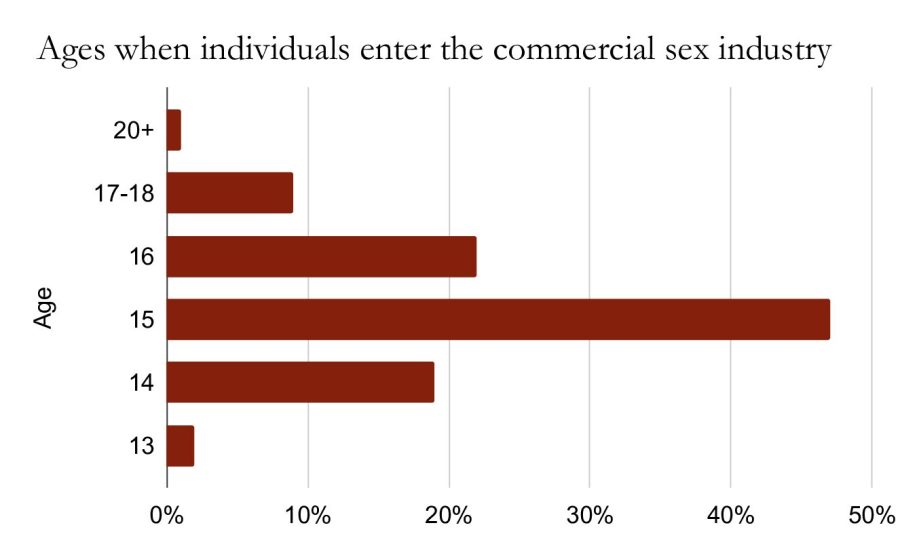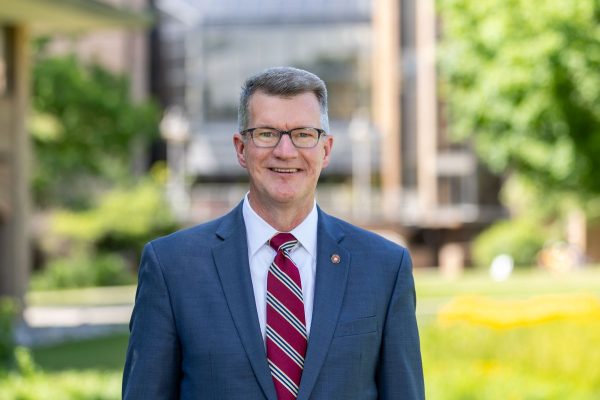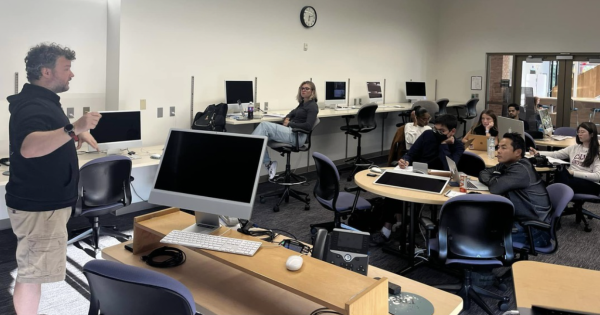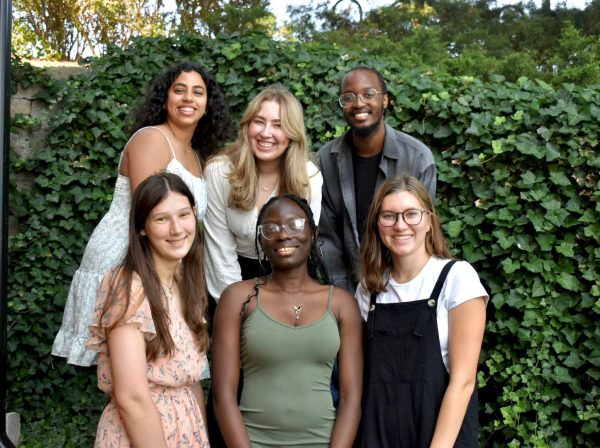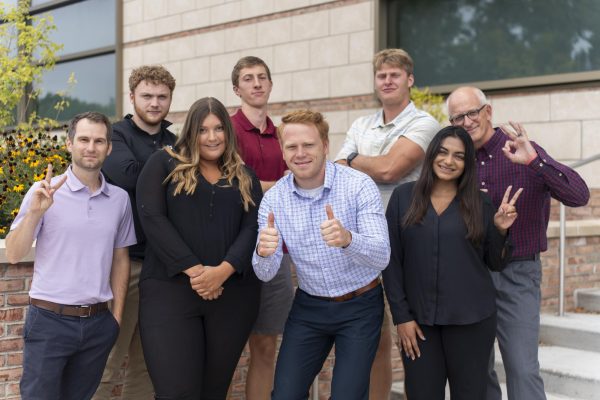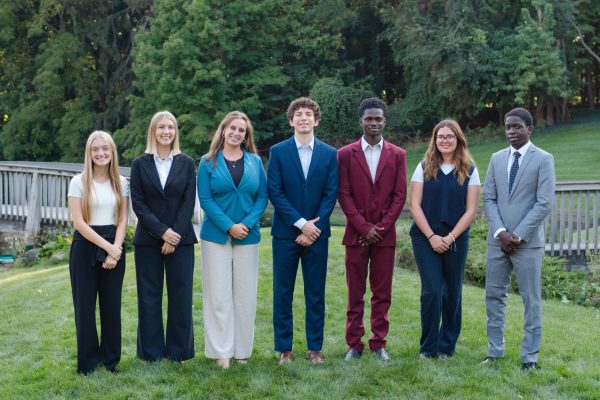January is National Human Trafficking Prevention Month
Here’s what you can do about it
“The problem of human trafficking isn’t somewhere else: It’s part of our whole community, and it’s part of my community,” Rachel VerWys, CEO of Safe Haven Ministries and contributor to West Michigan’s Human Trafficking Coalition, told Chimes.
In the last 10 years, research on trafficking has increased, according to Stacia Hoeksema, social work professor, and with it awareness.
However, “it would be good for us to give more attention to issues of human trafficking or exploitation,” Hoeksema said. A good first step, according to Hoeksema, is educating ourselves and our community.
The following information attempts to do just that; Chimes spoke to experts and reviewed data to compile an inexhaustive summary regarding the issue of human trafficking in Grand Rapids, Michigan, as well as options for student action.
The scale of the problem
Sex trafficking, as defined by the Polaris Project (an organization dedicated to collecting data about human trafficking in order to identify and care for survivors and inform community action) is “the crime of using force, fraud or coercion to induce another individual to sell sex. Common types include escort services, pornography, illicit massage businesses, brothels, and outdoor solicitation.” The organization defines labor trafficking as “the crime of using force, fraud or coercion to induce another individual to work or provide service.” Both crimes fall under the label of human trafficking.
In the West Michigan and Kent County areas, accessible data largely focuses on sex trafficking.
In Grand Rapids, the average age of entry into commercial sex trafficking is 15.2 years of age, according to research conducted by the Sexual Exploitation Data Project (SEDP) in 2016.
Additionally, “evidence from those advertising online … on Backpage.com points to 85 new individuals, every month, being advertised for the commercial sale of sex against their will,” according to the SEDP. This number is drawn only from Grand Rapids advertisements in the “Escort” section of Backpage.com.
The SEDP’s estimate says approximately 1,000 new individuals annually are advertised online for commercial sexual exploitation.
Other findings from the SEDP include a demand for underage girls; encounters with younger girls tend to cost more money. Advertisements for younger girls also more frequently exhibit evidence of a trafficker’s control.
The SEDP used survey techniques and online analysis of advertisements and reviews on Backpage — a website that was shut down in 2018 due to charges brought by U.S. authorities including but not limited to the facilitation of prostitution — to identify trafficking trends in the Grand Rapids area in order to “inform policy, current policing and victim identification, criminal justice and social service practices.”
Though Backpage.com is no longer active, VerWys said that “the use of online mechanisms to, particularly, exploit children is growing at an alarming rate.”
Not all trafficking happens digitally, though. Rachel Venema, researcher with a Ph.D. in social work and former Calvin professor, conducted a study about illicit massage businesses in Grand Rapids through surveillance data and online prices for services rendered.
According to her study, the illicit massage business industry in Grand Rapids generates approximately $6 million of annual gross revenue.
Domestic violence intersects with the issue of trafficking as well. According to the SEDP, around 20% of individuals said that their family or intimate partner held control over them during their time on the streets.
Because of this intersection, Safe Haven Ministries recently announced an expanded mission: to serve people involved in sex trafficking as well as victims of domestic violence. In the last calendar year, Safe Haven Ministries has served over 50 victims of sex trafficking, according to VerWys.
“We need everyone to pay attention”
Because human trafficking is such a complex issue, it is impossible for any one sector of the community to combat it alone, according to VerWys. “My belief is that we need everyone to pay attention to this issue because we need both the criminal justice system and social services and the business community and housing to all agree that we all can be part of building solutions,” VerWys told Chimes.
Charity Oliver and Cierra Larson are Calvin students passionate about this issue. Larson has been involved with fundraising for organizations that combat human trafficking since middle school, and Oliver organized a “Dressember” event last month: Dressember participants wear a dress or tie every day of December to help start conversations about human trafficking awareness.
Through tabling, word of mouth and emails, Oliver and her team was able to get a team of 10 people to participate, according to Oliver.
Larson told Chimes she thinks Calvin could be doing more to advocate for this issue, although she recognizes the challenge of encouraging students to participate. She sees “making smaller connections with different people to … spread awareness slowly” as the most realistic solution.
One opportunity to learn more is Michigan’s Annual Statewide Human Trafficking Summit held on Jan. 26. This event is accessible to students and professionals in online and hybrid formats.
Getting involved with advocacy work on related issues, such as immigration reform and homelessness, is a good way for students to help combat human trafficking, according to VerWys.
Finally, mindful consumption and peer accountability online are increasingly important as well, VerWys told Chimes.
“It’s easy to get kinda caught up in our own little world … — the exams I need to take or the papers I need to grade — and lose sight of the needs all around us,” Hoeksema said. Becoming more aware of the reality of human trafficking in our community is “an important challenge for all of us here at Calvin.”
This story has been updated to reflect that Oliver’s Dressember team was not Calvin’s first. Chimes regrets this error.



